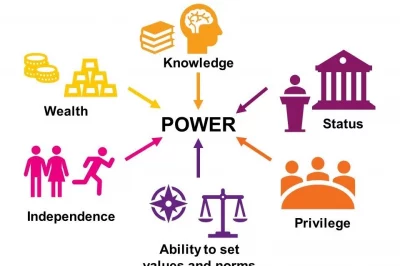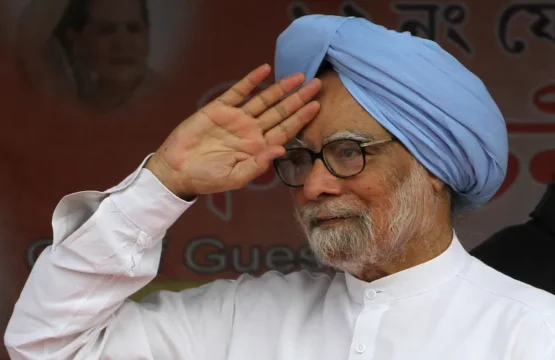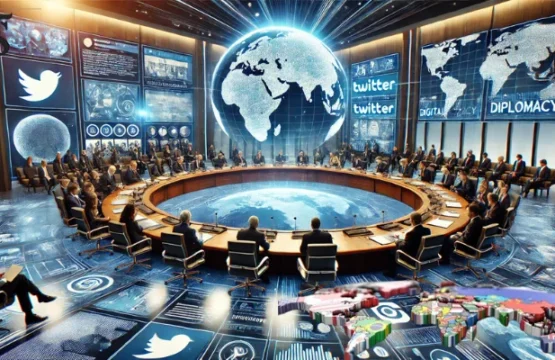Authority at the state level can simply be defined as the monopoly on violence. We can further elaborate on the concept by saying that when a group of people having common goals and interests and the exact identity come together under the same regulatory body to whom they willingly surrender their extreme freedom and demand law, order, and welfare in return, is what Thomas Hobbes called The Social Contract.
This social contract between the ruler and the ruled is a prerequisite to a state’s social, political, and economic order. As long as this contract is respected, state machinery runs smoothly without any hindrance from either side. However, the order gets distorted when any sides breach this social contract. Hence, a social contract works like a marriage that needs active, honest, and responsible participation from both ends to make it a successful relationship.
On the other hand, when the contracting entities start violating the contract clauses, society gets affected, which can also lead to the total collapse of the system. I want to bring the reader’s attention to the more disastrous ruling side.
The reason why breaching the contract by the ruler can wreak more harm than the ruled one is because the ruler is the one who influences the entire nation as well as their international reputation. Meanwhile, the ruled ones are just minor parts of a big herd that cannot come under the limelight unless their activities directly influence their nation’s domestic or foreign projects.
In the twenty-first century, we are seeing a comeback of authoritarianism. After the Cold War, it was anticipated that the only form of government that would dominate the world would be liberal democracy. Francis Fukuyama, in his book “The End of History and the Last Man,” tells us that the history of humanity has come to an end, and democracy is the final product of it. But he probably did not know what follows next (to democracy) would challenge his thesis. Not only non-democratic states but also democratic states are experiencing the rise of authoritarianism.
In reality, the democracies are falling prey to the authoritarian leaders more. In systems where the majority is authority, it is very easy to grab the attention of the majority by appeasing them. To appease the majority, the leader portrays himself as a Messiah who is the solution to all the problems his nation faces, this is called populism. So, the problems/ issues (real or perceived) provide a room temperature for populism to thrive.
All populist leaders have a few things every day in their agendas: the claim of restoration of the past glory of their nation, making their people believe that they are victims of foreign conspiracies, feeding the brains of the ordinary people with nationalistic narcissism, and telling them that they are superior to all other nations, etc. All these tactics appeal to the inner emotions of the masses, and hence, they start worshiping their cult without any questions.
If a leader is honest with his nation, he is always ready to be held accountable for his deeds. Still, if a leader has no fundamental statesmanship skills and all he is after is power, no matter what it costs, then he exploits the mindsets of his people and escapes from accountability.
Also Read: US-Pakistan Cricket Bond Strengthened at Diplomatic Six
The collective psychology of the masses makes their critical abilities very limited. They believe their leader will always find a solution to their “ever-present” problems, so they never hold him accountable.
Getting away with his political blunders causes a dent in the nation that a populist leads. These dents are never easy to repair. The cost a nation pays for the worship of its cult leader is too high, they realize after the disastrous collapse.
In democracies, being an authoritarian leader becomes a piece of cake if the masses are attracted to the charisma of their leader. Everything uttered by their “Messiah” is a valid word for them that cannot be challenged nor questioned.
This is how people in a democratic system surrender their entire self, freedom, and right to ask their leader to someone who can allure them. People, without even realizing it, gave up their rights to the authority that came to power through their vote.
This is how authority becomes authoritarian with people’s consent and how democracies are rolling back in the twenty-first century. This is not the end of history, as Fukuyama suggested. There is a lot more to come.
The major contributors to the rise of populism in the present age are mainstream and social media, as the phenomena of globalization, where people are closely knitted to each other all around the world.
Since these mediums provide easy access to what a populist has to disseminate to the great majority of people, the propagation of the ideas of that charismatic leader becomes so easy. In democracies, the number of voters decides a leader’s future, not the quality.
It is a bitter fact that humans do not act rationally in groups; also, rational beings are naturally lesser in number than irrational ones, so it becomes easy for a populist to win the support of the majority just by looking good on screen or uttering big empty claims.
We are witnessing the rise of celebrity culture in politics, which ultimately becomes populism. This populism then converts into authoritarianism that captures the entire system, the critical decisions of a nation, and the future of a state without considering the people of that state. History has taught us how disastrous authoritarianism can be. Take the example of Hitler’s regime, but we learn from history that we do not learn from history.
** The opinions expressed in this article are solely those of the author and do not reflect the views or position of World Affairs Insider. The organization neither endorses nor takes responsibility for the content of this article and its accuracy.

The writer has done bachelors studies in international relations from university of Peshawar and is currently working as a research assistant in Public Relation services.







